'We're family': How the I-Collective is bringing Indigenous people and food together
Unlike Eurocentric cuisines, the conversation surrounding Indigenous foods and food systems have often been nonexistent at worst, or at best, relegated as a niche topic, if even acknowledged. But for the members of I-Collective, it's the main focus and at the heart of their mission to educate future generations about Indigenous food sovereignty.
As they see it, gathering and sharing knowledge about seeds, foods and crops local to a region or tribe is what ties the past and future together and it means taking ownership of and relearning histories overrun and tainted by colonialism and white supremacy.
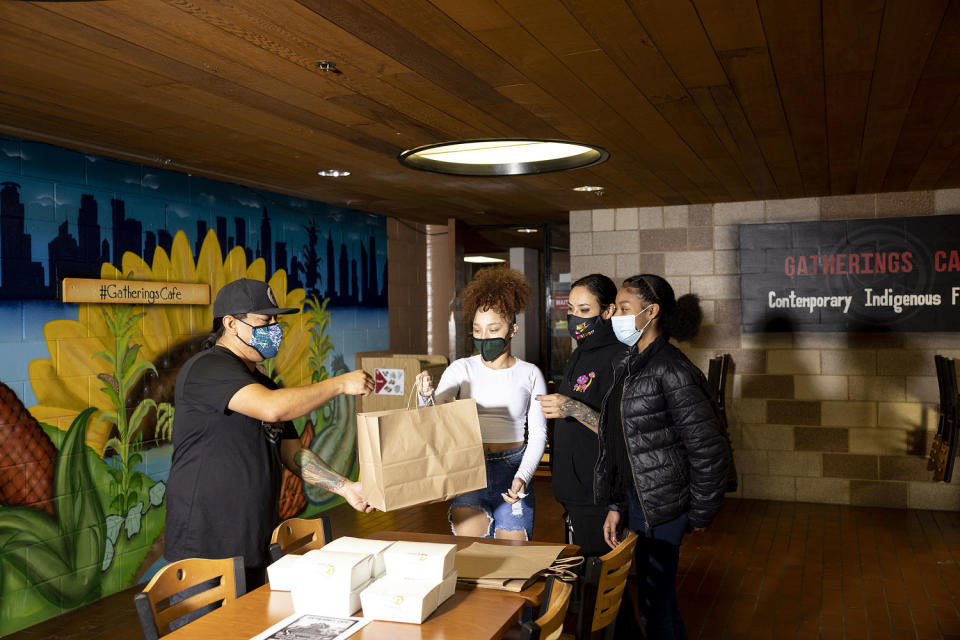
Brian Yazzie, 36, one of the collective's 20 members, a Diné (member of Navajo Nation) and the executive chef of Gatherings Cafe at the Minneapolis American Indian Center explained to TODAY Food, "I-Collective is pretty much seed keepers, seed scholars, food activists, cooks and chefs. The focus is bringing awareness to culinary cultural appropriation, talking about stuff that not a lot of people would like to cover."
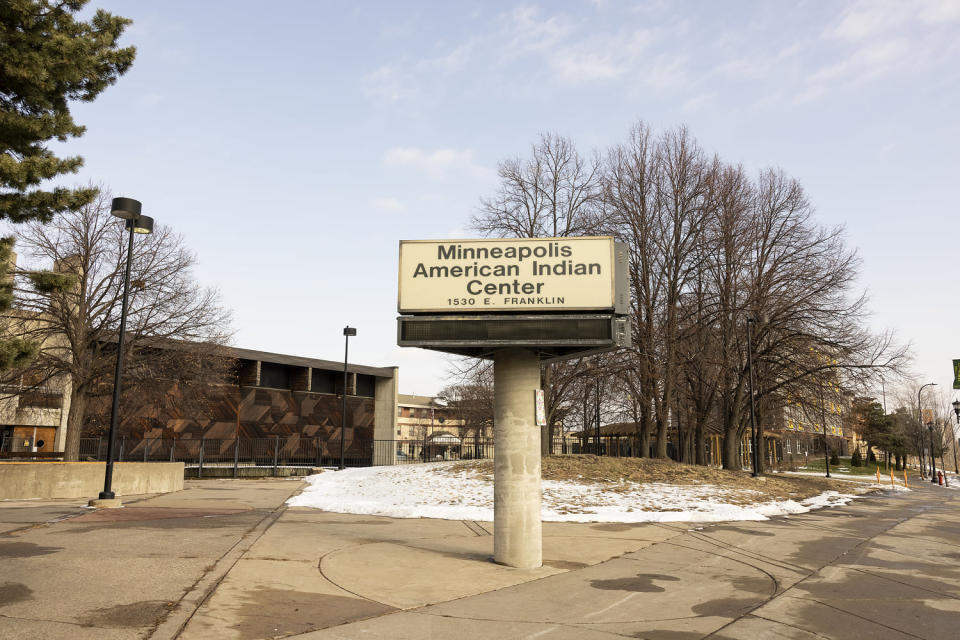
Kirsten Kirby-Shoote (Tlingit) added, "Not everybody in I-Collective is just a chef or this or that. Like, it's a lot of different people who are involved. We have one common mission but from a lot of different perspectives."
There's an understanding and kinship within the collective, even though its Indigenous members hail from a wide variety of reservations and tribes spanning North America, from Delta Junction, Alaska (home of the Athabaskans) and Dennehotso, Arizona (Navajo Nation) in the West to Petoskey, Michigan (Anishinaabe) in the Midwest.
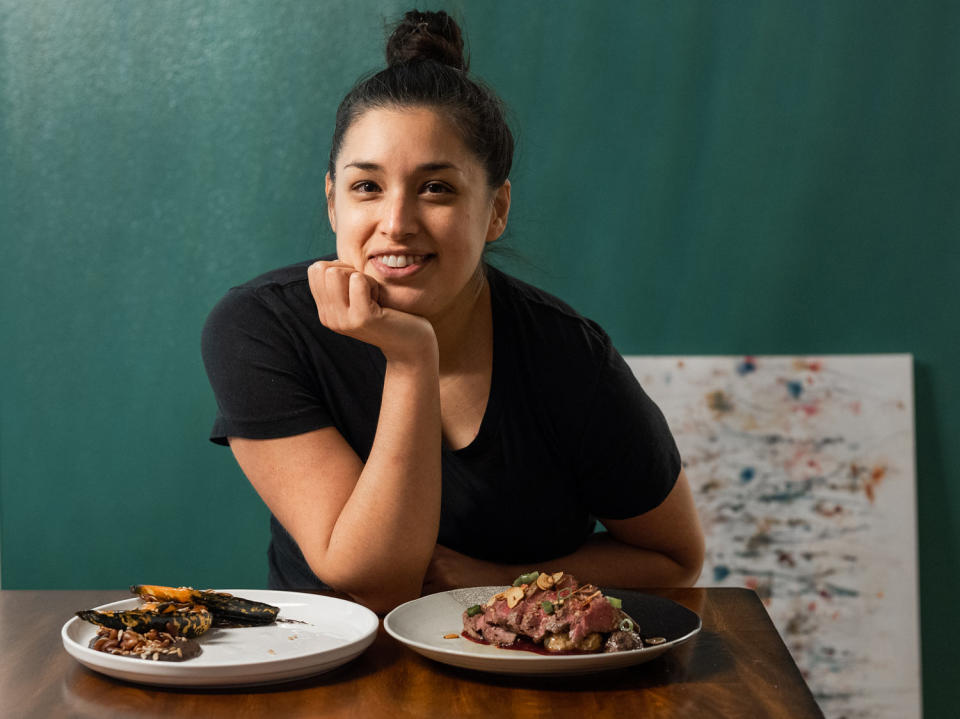
Hillel Echo-Hawk (Pawnee and Athabaskan) describes the collective as a community. "We're family. It was pretty much the first time I ever felt comfortable in a kitchen," the 36-year-old shared with TODAY.
"We all understood our history. We all know about colonization. We don't have to explain anything. We can just be native."
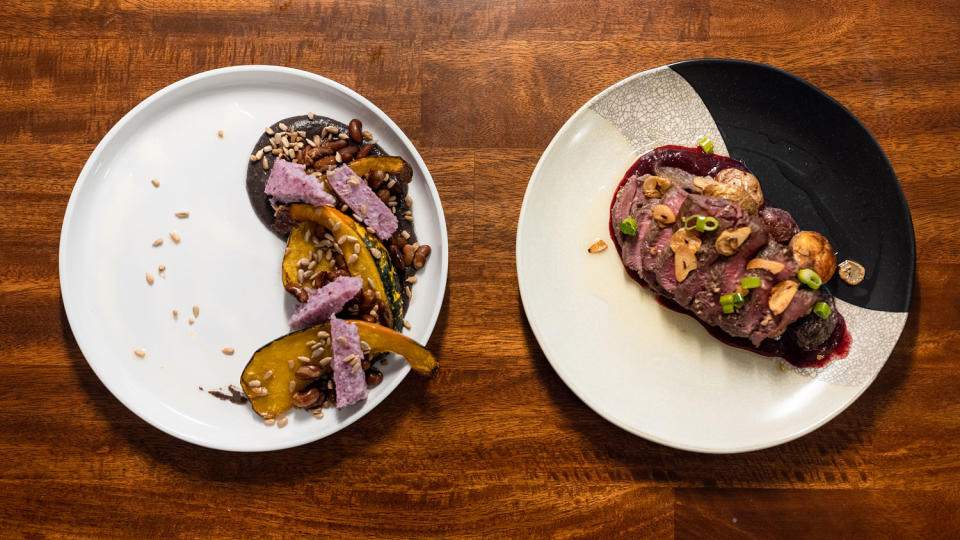
Neftalí Durán co-founded the I-Collective nearly five years ago with three friends: Karlos Baca, Liz Charlebois and Erica Scott. "The I-Collective project just started as an art statement more than anything. We had this idea back in 2017, spring of 2017. We were seeing the beginnings of the Indigenous food sovereignty movement starting to be a darling of the media, but with very little representation," the 43-year-old, who is from Oaxaca, Mexico, told TODAY.
"So spring 2017 was like four of us who were like, 'Why don't we do something this year to bring attention to the fact that the whole idea of Indigenous people in the U.S. is twisted and part of the erasure that goes along with cultural genocide?' So we decided, as many of us have been cooks and being involved with food, we decided to propose taking over a couple of restaurants in New York City for Thanksgiving to basically have conversations about how damaging the myth of Thanksgiving is and bring to the table the colonial menus."
The group partnered with organizers like Ora Wise and worked their networks to bring their radical vision to life and launched at two New York City restaurants — Dimes in Manhattan and The Pixie and The Scout in Brooklyn. "We didn't know what was going to happen next. The following Thanksgiving, we did the same thing. And then it just evolved in time to having conversations in different parts of the world. So we've done events in Seattle, Colorado … different parts of the U.S., and more people started to join the collective … and people bring their own ideas and their own work. But it's all based on the same values of Indigenous representation, anti-racism, intersectional justice."
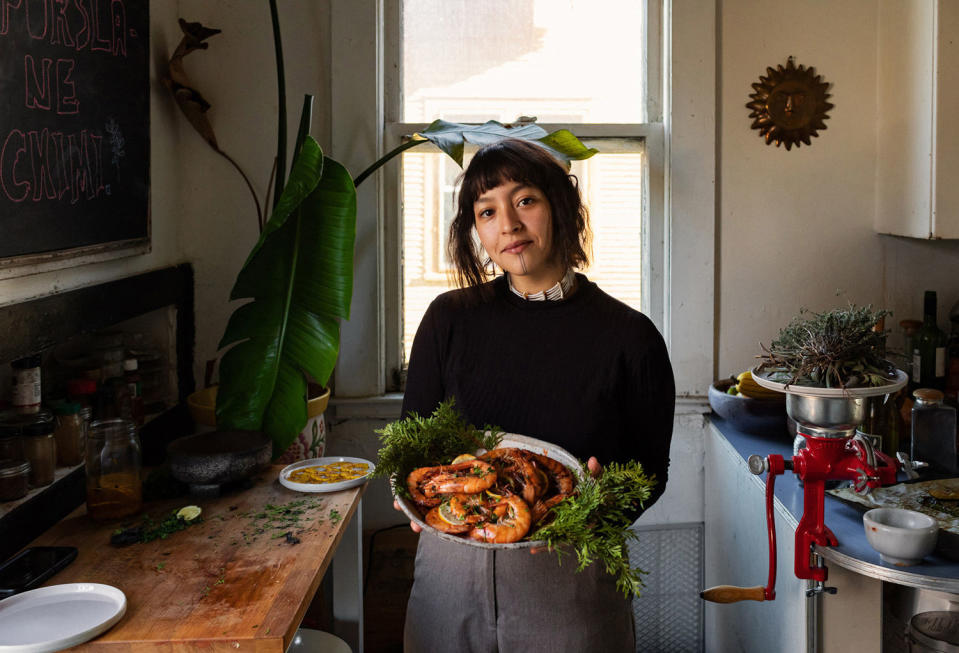
Kirby-Shoote first learned about I-Collective after she moved from Oregon to Detroit and has found that learning from fellow Indigenous people has been invaluable. "I think it's really vital to be able to learn from other Indigenous people and and that's why I think I'm so lucky. Almost all my knowledge surrounding foodways or agriculture comes from other Indigenous people. And I think, when that's not the case, I've talked to a lot of people that like, when they're brought up in kind of a more Eurocentric academic environment, that it takes a lot of unlearning to get back to your roots."

Camren Stott, 25, has also relished his I-Collective journey so far. The former sous chef-turned-student told TODAY, "It's really fun when we all get together and we're like, 'Hey, I have prickly pear fruit.' Oh, well, I got wild rice.' Like, we get together and we bring all our influences together and make amazing dishes."
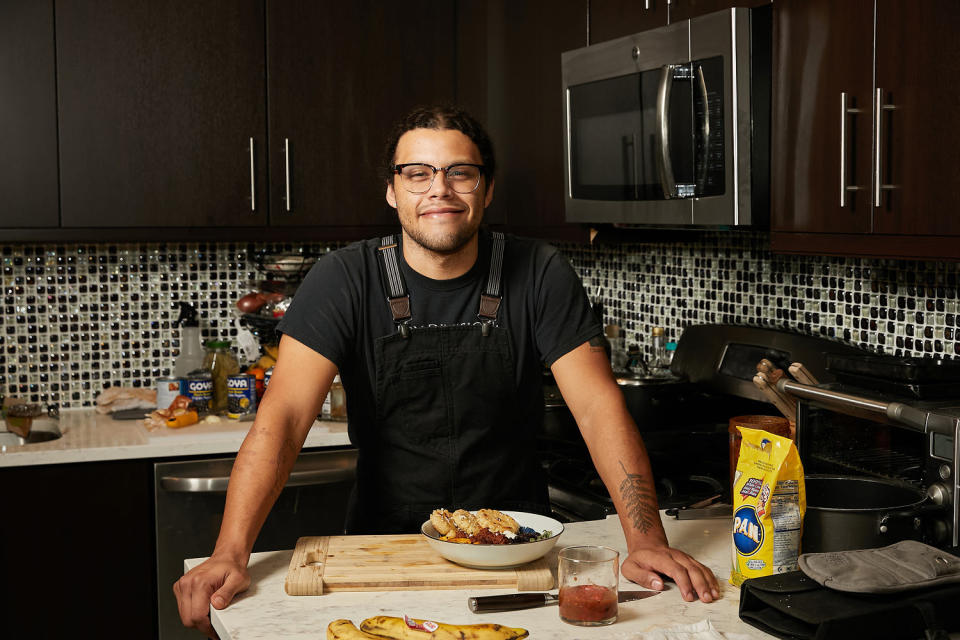
Stott (Anishinaabe), a member of the Little Traverse Bay Band of Odawa Indians, said I-Collective helped him think more deeply about the food he was cooking. "The shift for me was taking my French culinary background and taking these dishes and … I don't like to use the word decolonize, but like, 'How can I indigenize this dish?' … I would say that a lot of people really try to go for a completely decolonized diet, which I respect, but I feel like sometimes, that's really hard to navigate through.
"So a lot of my dishes do have a certain aspect of colonized ingredients in it but like, if I wanted to do hazelnut wild mushroom risotto. Hazelnuts are indigenous to here. Wild mushrooms are indigenous to here. So I would forage wild mushrooms, I would get hazelnuts. And I'm like, Arborio rice for risotto but what if I use wild rice instead? So basically taking dishes that people are familiar with, and kind of indigenizing them in a way. That's what a lot of chefs do."
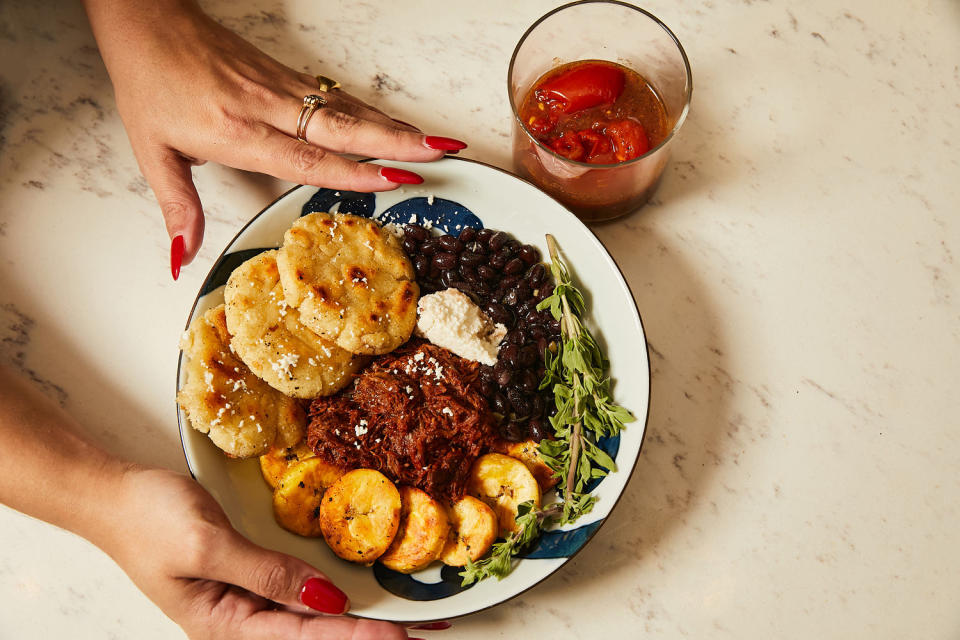
"I really love I-Collective because it's not just a bunch of chefs getting together and you know, having a big head and ego about the work they're doing, but we do this specifically for the Indigenous community. We don't really do it for any egotistical purposes. I just think the scope of the work is really important. I'm very dedicated to it," Stott said.
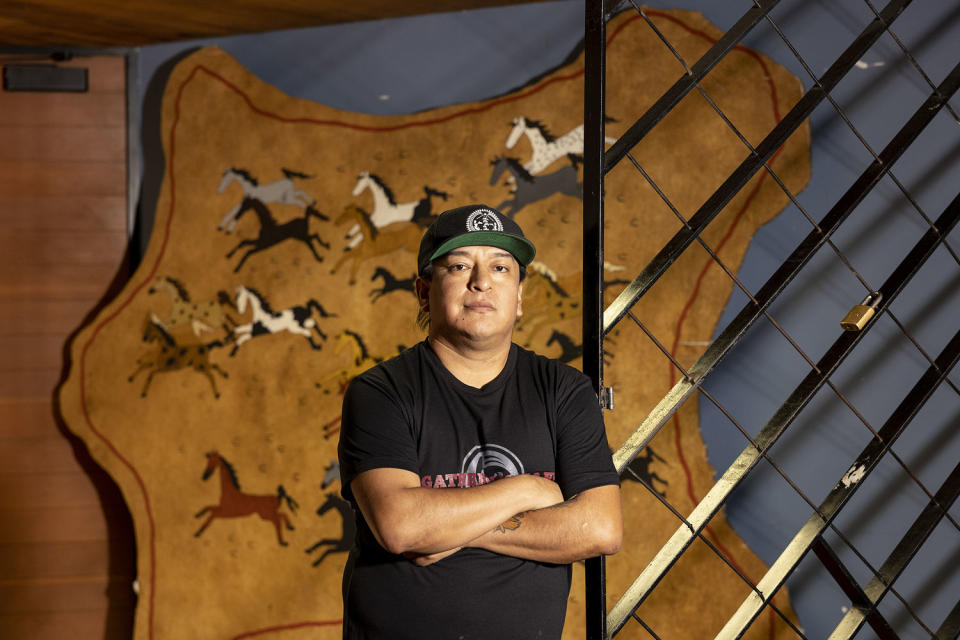
In addition to small gatherings, Yazzie explained that members also attended and launched events themselves. "Before the pandemic, we'd been attending a lot of Intertribal Food Summits. It's basically a conference but it's all Indigenous cooks, chefs, scholars and coordinators. And it's always on the reservation or tribal community. So if you attend these events, you'll see live food demos, presentations, live cooking, you'll see butchering outside, smoking meat, in the wigwam, you'll see all these different tribal practices."
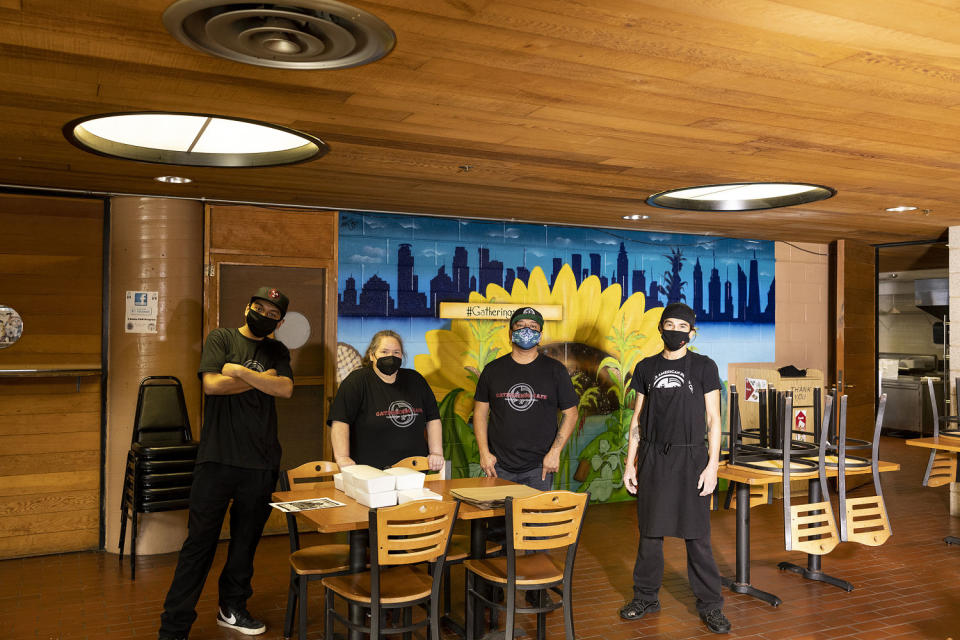
"Different tribes have their own seed programs but it's also the appropriation and the tribal protocol around that, knowing what seed grows in which climate, in what region. Is it OK to plant that here? Or is it invasive? So it's just being careful around that and just gaining more knowledge around that."
Today, the I-Collective stays connected through social media and word of mouth. Their latest project has been a cookbook, titled "Gathering Basket," featuring Indigenous ingredients like sumac and yucca.
"Right now, the project that we're working on is a digital cookbook that has been put out and … then working on bringing on new network and new staff as well. So looking at new aspiring cooks and chefs and seed keepers who are interested to carry on the torch," Yazzie explained.
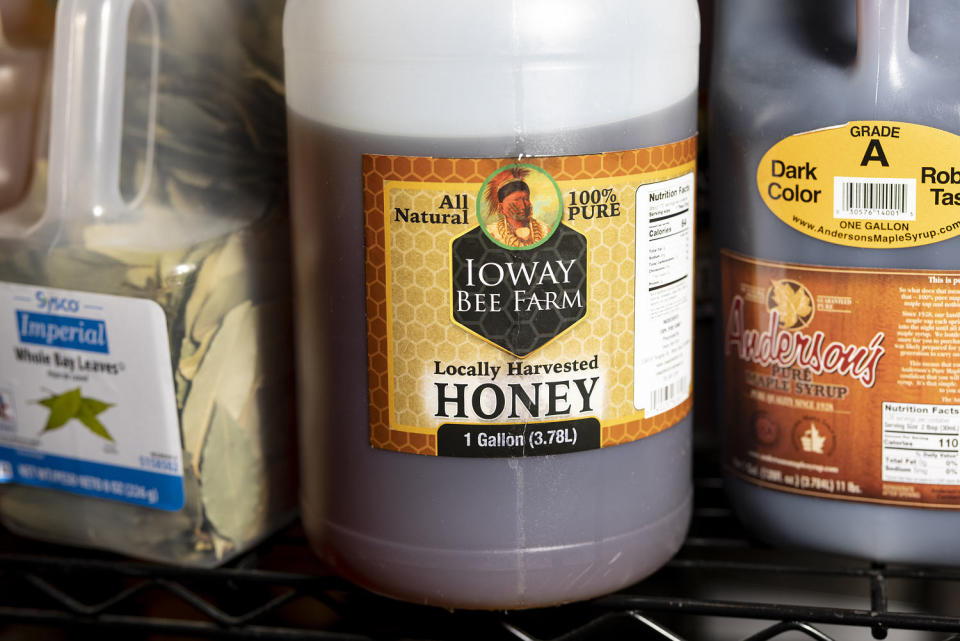
Yazzie and the I-Collective members, who all juggle multiple priorities like school, jobs and side projects, say the energy and efforts around the collective are worth it. "It is a lot of work but at the same time, if I'm not doing it, who else would do it?" Yazzie said. "There's only a handful of us who are doing this type of work … who are actually community based or working with the community. And for me, at the end of the day, it's just knowing that I'm a mouthpiece for the community, or I'm a connection to the community. So just using my platform and looking at it as a humble way, you know, staying community based instead of looking at it as an ego or self reflection."
"For anyone who's interested in joining (a) movement (like I-Collective), just be prepared to be proactive. Especially right now, because … people see it as a trend right now — Indigenous food movement — but it's just people are waking up to what is Indigenous food movement. It's just always been here, we've just been overlooked. Having more inspiring cooks and chefs coming up to help is definitely what we need this year."
This article was originally published on TODAY.com